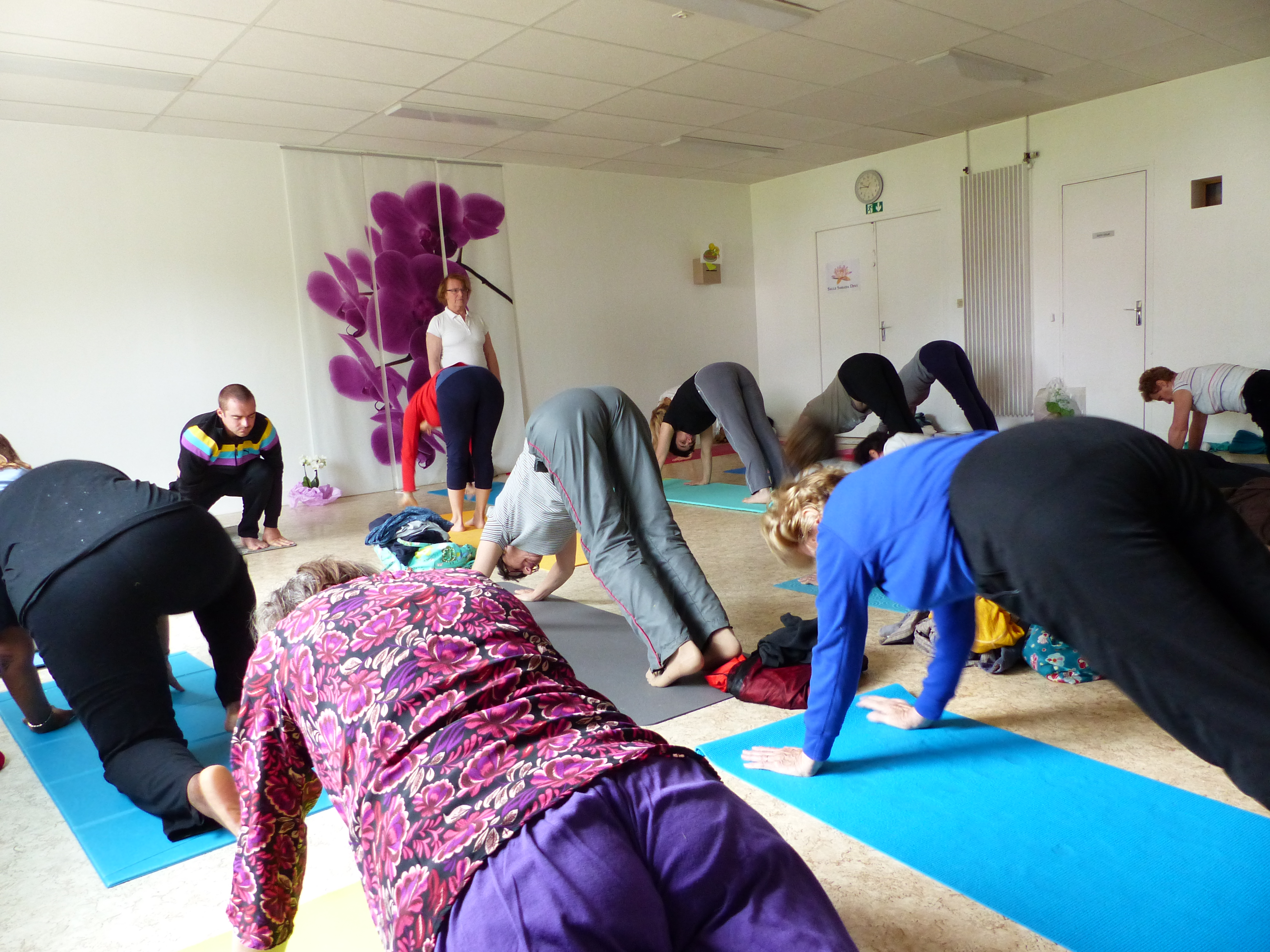This text is mostly extracted from the book by Swami Vidyatmananda – "Vivekananda in Europe" – CVR Editions
While Swami Vivekananda’s stays in the United States are well known, his visits to France are less so. Although shorter, they left a lasting impact on the presence of Vedānta and yoga philosophy in France. Vivekananda came to France several times. First, he made a brief stay in Paris in 1895, attending the wedding of his friend Francis Leggett, a wealthy businessman from New York. He then went to England before returning to America. In 1896, he made two brief stops in France on journeys that took him from England to Switzerland, then to Germany and Italy, before returning to India. During his second trip to the West, he stayed longer in France in 1900, at the end of his last stay in the United States. His presence in Paris in 1900 was motivated by the Paris Universal Exposition and the meeting of the International Congress of the History of Religions, where he spoke several times. This gathering did not have the same resonance as the Parliament of Religions held in 1893 in Chicago, where he gave his famous speech, but it allowed Vivekananda to express his interest in France, particularly the city of Paris. Of Paris he said: “Paris is the source of European civilization just as Gaumukh is the source of the Ganges. This great metropolis is a vision of heaven on earth. […] The University of Paris is the model for European universities.”
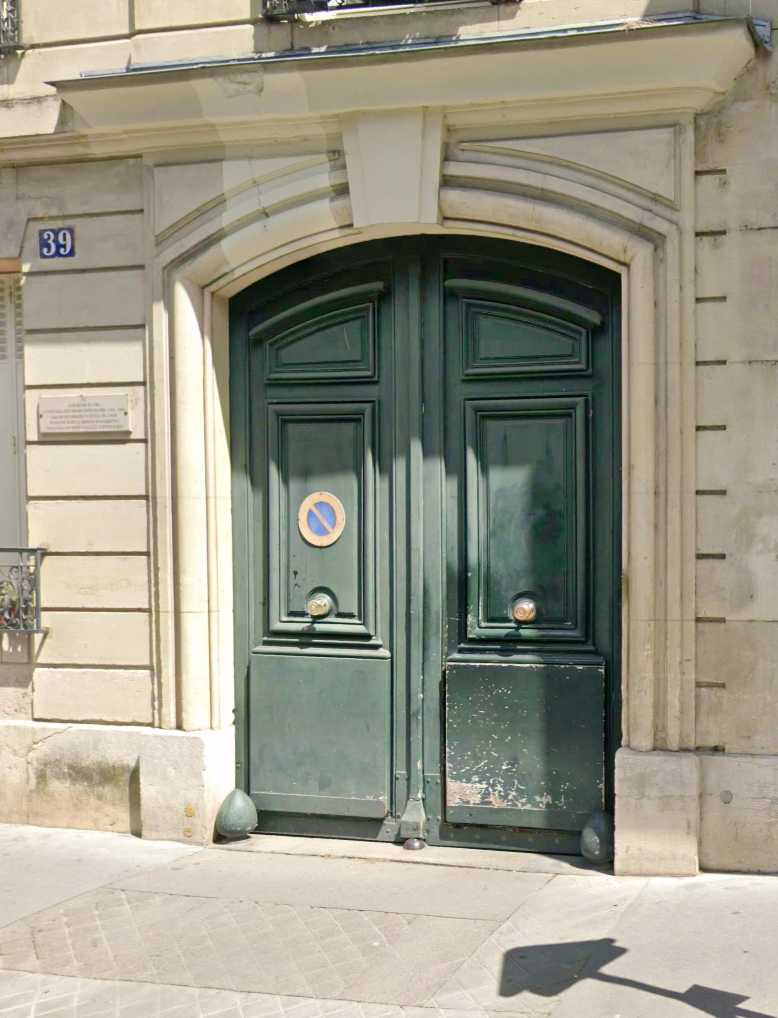
39 rue Gazan, Paris 14
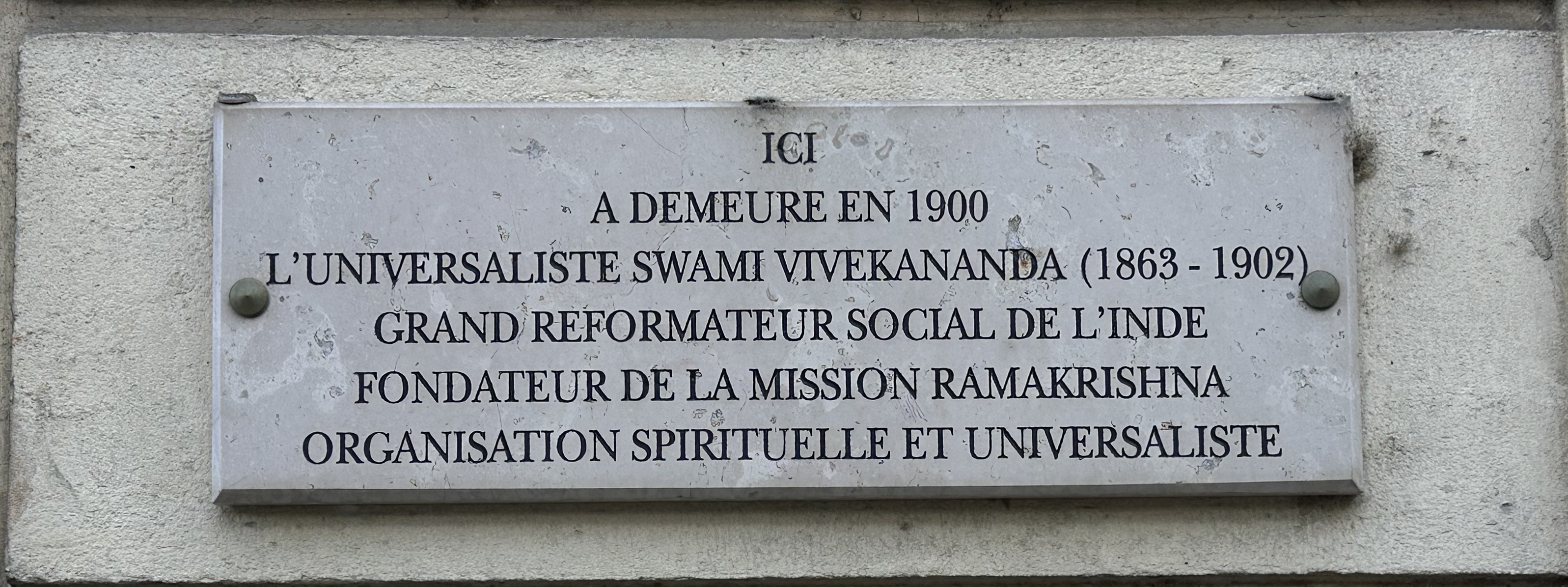
Commemorative plaque installed in 2012, visible at the entrance of 39 rue Gazan
He lived in several different places in Paris. He first stayed at Gérard Noble’s home on rue Gazan where a plaque mentions his stay, then with the Leggetts, his American friends, at 6 Place des États-Unis, near the Universal Exposition venues. Several important meetings were held in this apartment. Swamiji gave many lectures there on the philosophy of Vedānta before a cosmopolitan society, and he met significant figures from the Parisian intellectual and artistic world such as the sculptor Auguste Rodin, the actress Sarah Bernhardt, and the soprano Emma Calvé.
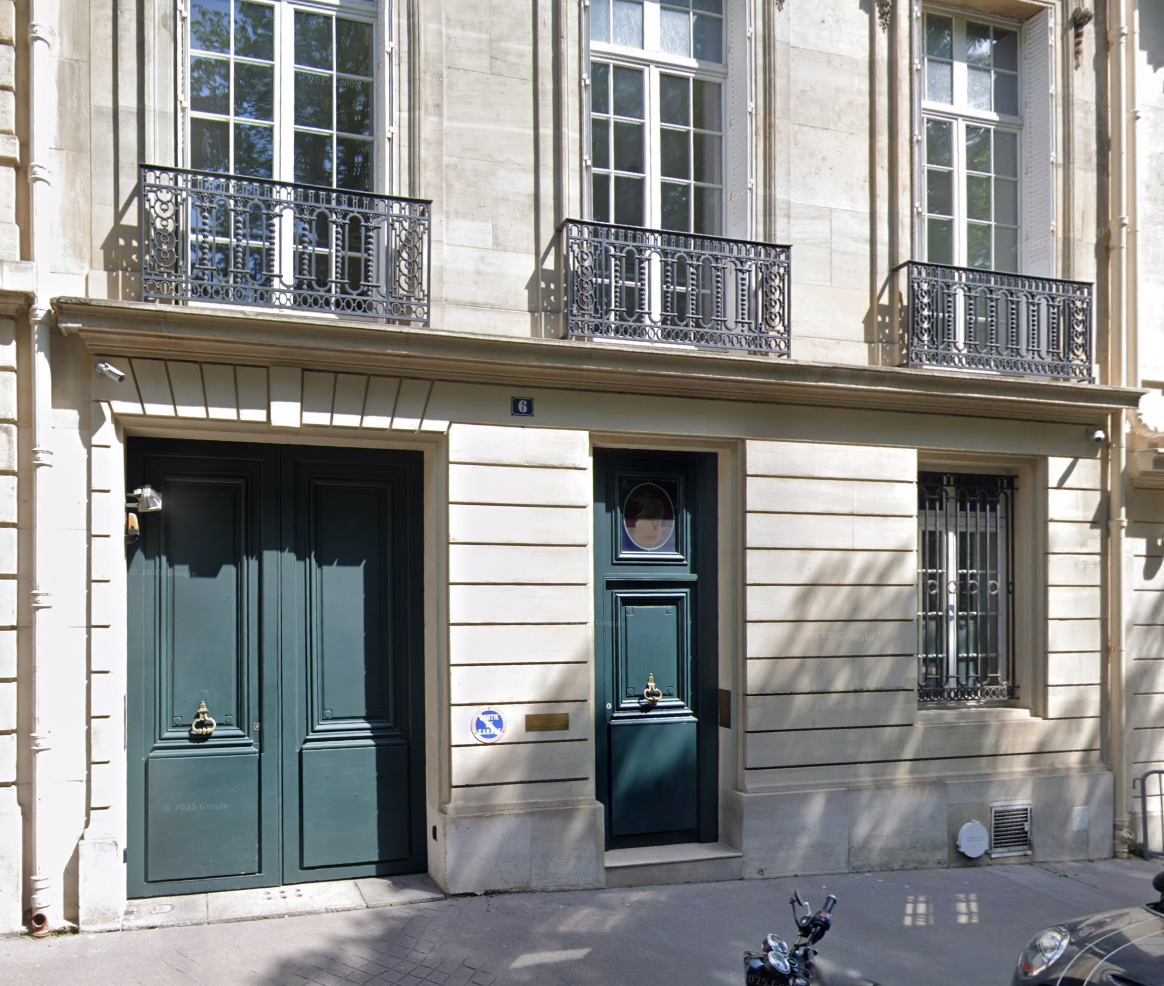
6 Place des États-Unis, Paris
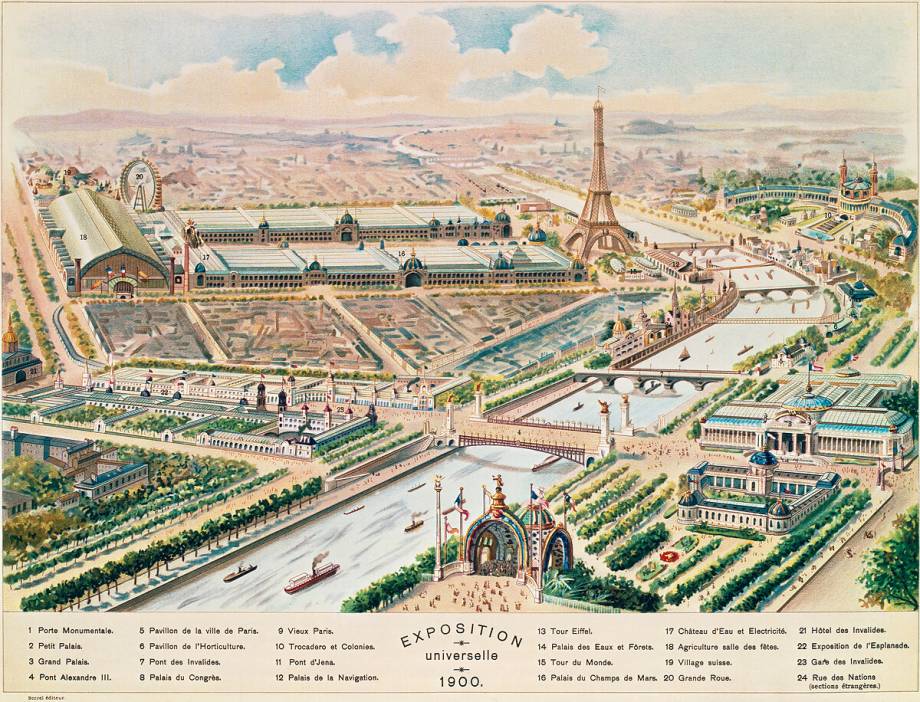
1900 Universal Exposition
He also spent two stays in Brittany at Perros Guirec, which was then a small fishing village near Lannion. There he met again with his Irish disciple Sister Nivedita, who was staying with a friend along with other American or French intellectuals close to the Swami. While his stay in Paris was lively and active, filled with meetings and lectures, his stay in Brittany was meditative — contemplating the sea, visiting small Breton villages with their churches and calvaries. Perhaps he attended a Breton “pardon,” curious as he was about all kinds of religious customs, which may have reminded him of Hindu ceremonies. Interested in all holy places, he visited Mont-Saint-Michel — notably on September 29th, the feast day of the Archangel Saint Michael — like a pilgrim, which he was throughout his life. In his biography of Swami Vivekananda, Romain Rolland wrote: “He is increasingly struck by the similarities between Hinduism and Roman Catholicism. Far from feeling a difference of nature between Europe and Asia, he is convinced that any profound contact between Europe and Asia must inevitably lead to a European renaissance, renewing its vital supply of spiritual ideas from the East.”
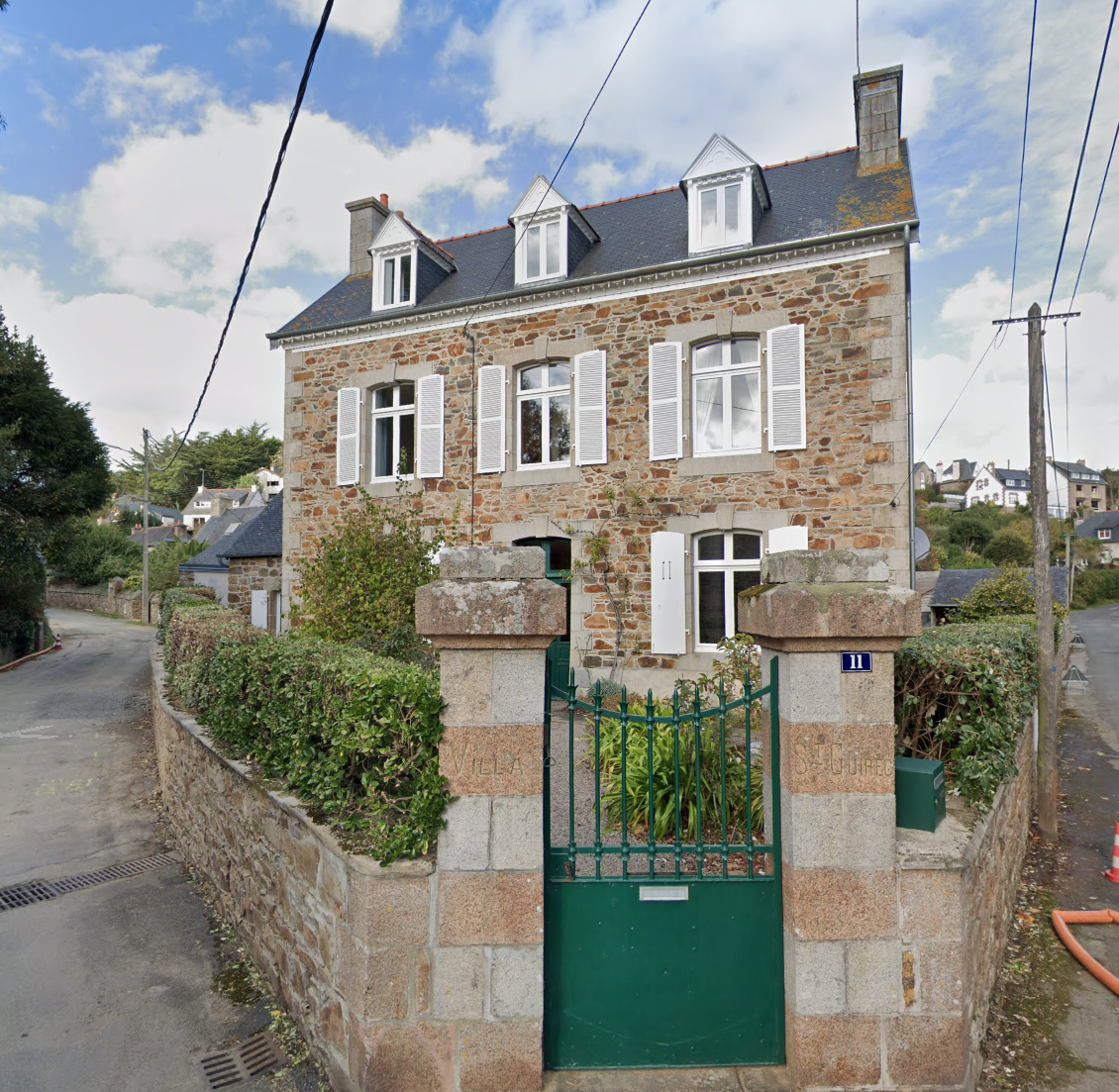
Villa St Guirec, 11 rue de Trestrignel in Perros Guirec

Mont-Saint-Michel in the 1900s
When he returned to Paris, he stayed with the writer Jules Bois near Parc Montsouris, where he got to know French culture more deeply. He visited the Universal Exposition many times and exchanged views with many contemporary thinkers, which led him to declare that Paris was then “the center of the civilized world.” Swamiji took advantage of his stay in France to learn French. Although he probably did not speak it well enough to lecture in it, there are several handwritten letters in French proving that he had mastered the language.
According to his own view, the 1900 Congress in Paris was not very significant, more focused on scholarship and history than spirituality — due to the will of the Catholic Church itself. Although he held no official role, he gave lectures at the Sorbonne, the place where, forty years later, Swami Siddheshwarananda would also give founding lectures for the Ramakrishna Mission’s presence in France. Vivekananda spoke about the development of Hindu religion from its origins, giving the most importance to animism and ancestor worship. He contested some views presented by other speakers regarding the śiva-lingam and the interpretation of masculine and feminine principles. He insisted on the often-mistaken viewpoints of European orientalists and emphasized the revival of the Upaniṣads’ influence. According to Romain Rolland, he spoke of the Vedas as the common foundation of Hinduism and Buddhism. He upheld the priority of Krishna and the Gītā over Buddhism and rejected the theory of Hellenistic influence on Indian drama, literature, and science.
In his book "Vivekananda in Europe", Swami Vidyatmananda writes: “It seems that, for Swami Vivekananda, the thirty-nine years spent here on Earth were but an appearance in a very strange congress. He acted magnificently, he spoke as a creator. Some heard him and forgot. Some heard him and remembered. Others will hear him in the future! And the world, like the 1900 Congress in Paris, was honored by his brief appearance!”
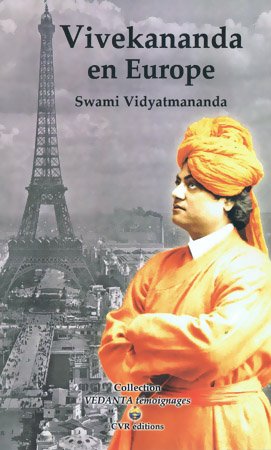
Cover of the book "Vivekananda in Europe"




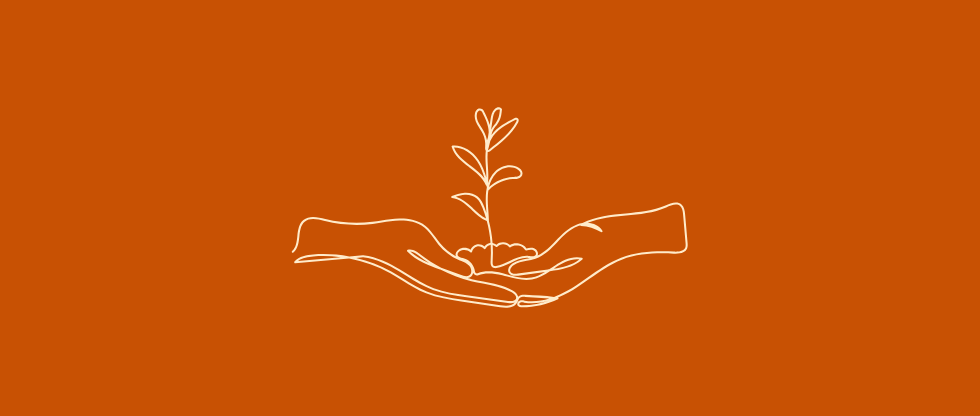








 Les enseignements de Ramakrishna et de Vivekananda sont un appel à la créativité : un de leurs buts vise à développer toutes les potentialités de l’humanité. La science, l’art, la technique, comme aussi bien les tâches quotidiennes, tout doit être éveillé par ce souffle de l’esprit, en chacun de nous, de telle sorte que tous nous développions l’excellence de notre personnalité, pour notre bénéfice et celui de l’humanité. Pour aller dans le sens de ces enseignements, le Centre Védantique Ramakrishna propose à partir de cette année, une série de formations qui constitueront ce que Swami Vivekananda et, à sa suite, les précédents Swamis du Centre Védantique souhaitaient : une Université de l’Homme total.
Les enseignements de Ramakrishna et de Vivekananda sont un appel à la créativité : un de leurs buts vise à développer toutes les potentialités de l’humanité. La science, l’art, la technique, comme aussi bien les tâches quotidiennes, tout doit être éveillé par ce souffle de l’esprit, en chacun de nous, de telle sorte que tous nous développions l’excellence de notre personnalité, pour notre bénéfice et celui de l’humanité. Pour aller dans le sens de ces enseignements, le Centre Védantique Ramakrishna propose à partir de cette année, une série de formations qui constitueront ce que Swami Vivekananda et, à sa suite, les précédents Swamis du Centre Védantique souhaitaient : une Université de l’Homme total.